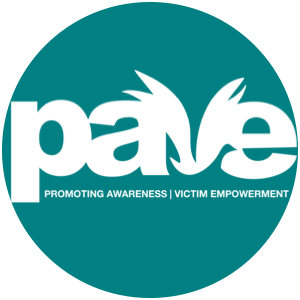Self-Care Beyond the Buzzword
Written By: PAVE’s Outreach Intern, Lisa Conolly
As we proceed through both Teen Dating Violence Awareness and Prevention Month, and another month in our strange COVID-19 pandemic life, PAVE wants to highlight some ways you can set aside time to better your relationship with yourself and others.
In recent years, “self care” has become a frequently used term in our everyday conversations. It’s a hot topic for social media influencers and users alike, spreading like wildfire on all forms of media sharing platforms. But are we using self care in the most accessible and sustainable way?
The general concept of self care focuses on the idea of taking care of oneself. On Instagram, this might look like filtered pictures of spa retreats, international vacations, encouragements of shopping sprees (#treatyourself) and luxury bath bombs or face masks, to name a few. While these activities can bring joy and certainly have their benefits, in the context of self care, they might only bring instant gratification on a superficial level.
Humans require connection, security, nourishment, stimulation, and rest. To fulfill those needs, it helps to think about self care as an act of creating routines that build a compassionate and caring relationship with yourself. This can look different for everyone, but it might be good to start asking yourself questions like, “where and how do I feel the most comfortable/most at ease?” and “what parts of my life cause stress or drains my energy?”. Defining self care for yourself, reflecting on what you need to tend to your own energy and needs, and making it a commitment are key elements to a strong self-care ritual.
Relationships require self care, whether it’s in the context of relationship with others, or yourself. Setting boundaries is a skill that builds and strengthens healthy relationships, and is a great way to take care of yourself and your energy. It can be difficult to grapple with if we’ve been taught to be a caretaker for others, have difficulty being assertive, or just weren’t modeled healthy boundaries as children. Without boundaries though, we might feel burnt out from constantly saying yes, not knowing how we truly feel, or even from letting others make decisions for us.
Tuning into what you need, on a monthly/weekly/daily/hourly/however frequent basis is a starting point for setting boundaries. If you can check in with yourself to see what you need, or how you’re feeling, you’re not only prioritizing your well-being, but also giving yourself a roadmap for healthy communication with others. And if this feels like a challenge at times (because it might!), remember that there’s truly nothing wrong with looking out for yourself, and that doing so will positively influence those around you.
Remember that relationships are a two-way street. When you’re able to effectively and clearly let someone know what you need from them, or if you can say no to things that don’t interest or serve you, you’re creating safety and a stronger sense of self. Maybe you notice that you feel anxious or irritated when your partner FaceTimes or calls you out of the blue throughout the night. After you decide what needs to change to bring safety back into the equation, consider approaching the situation from a non-accusatory perspective. Keep the lines of communication open by being curious about their needs and wants, while also being honest about your experience, emotions, and perspective. Practicing setting boundaries like these will create an understanding of what’s okay and what’s not okay in our interpersonal relationships. And, all of this is a radical, life-long process of self care.
Building and maintaining boundaries will take time and practice. It won’t always be perfect or bring immediate gratification, and you may begin to wonder if binge-watching Netflix was the right choice all along. Be patient with yourself and others, and remember that learning to take care of yourself in this way is hard work. And, most of all, that you deserve it!
PAVE is here to support you through your journey of self care in relationships. Together, we can normalize the practice of prioritizing ourselves to create healthier relationships with the ones we love. If you’re in need of support or more information on boundaries, self care, or self love, we are here for you.
